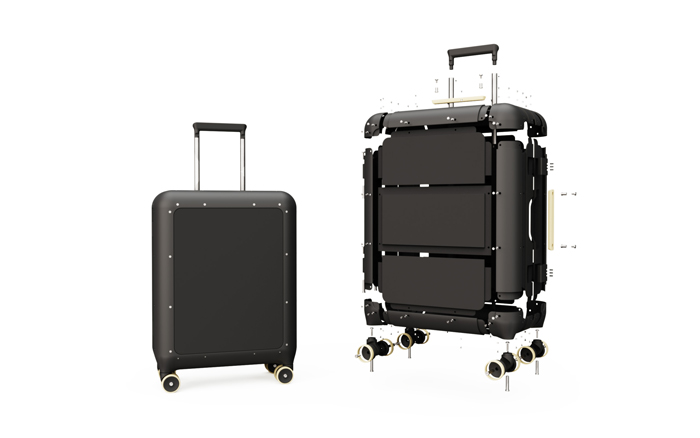Leo Angelo Schick wins James Dyson Award Germany 2025
News

The modular ENSO case system from Leo Angelo Schick: consistent circular thinking.
This year's James Dyson Award Germany goes to Leo A. Schick, a graduate of the Industrial Design program at Pforzheim University's School of Design. His graduation project ENSO, a modular, fully recyclable case system that combines durability, recyclability and system thinking, was honored.
ENSO prevailed against strong competition in the national competition and thus qualified for the international round of the James Dyson Award 2025, which includes a grant of 6,000 euros for the further development of the project.
Modular system made from just three materials
The winning ENSO project exemplifies the principles of sustainable design. The case consists of just three single-origin materials: a shell made of CURV® polypropylene, wheels and handles made of bio-based PHA plastic and stainless steel connections. These components can be completely separated and thus recycled or composted. An integrated digital material passport provides information about the origin and options for repair and return - creating full transparency for users.
"It's great confirmation to see that the challenges of sustainable product design are being recognized," says Leo Angelo Schick, delighted with the award. "My ENSO project shows that it is possible to take responsibility and develop innovative solutions for durable, modular products in small steps."
ENSO was created as part of his final thesis in the summer semester of 2025. Under the supervision of Prof. Manuel Aydt and Prof. Dr. Steffen Reichert, he investigated how product design can contribute to the reduction of material complexity and which structural levers designers can use for circular value creation.



